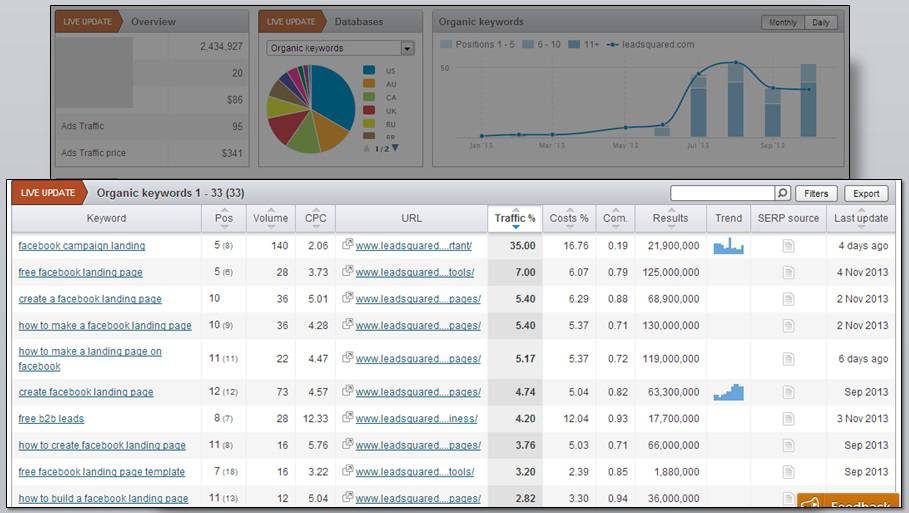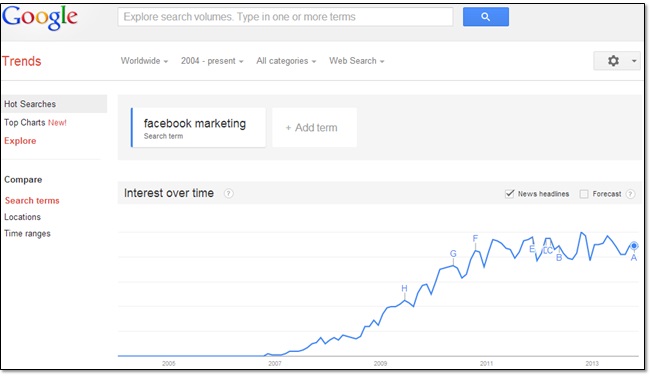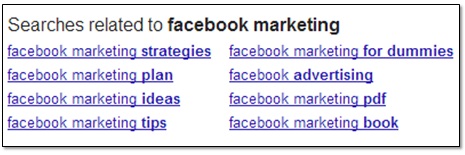We had recently conducted a webinar on How to get started with Website SEO. Several brilliant questions were posed at our panelists and they were happy to acknowledge them. One of the questions that caught our attention was this…in 2011, Google had started suppressing organic keyword searches from marketers to disallow them to see which terms were bringing traffic to their site. So, is Google the only source of keyword searches? No. I will elaborate on this here.
Where it all started…
Back in 2011, Google had announced that it will hide organic keywords from any logged-in user on any of the Google platforms like Gmail, Google+, YouTube etc. This news came as a major setback for marketers who used keyword data from Google to analyse search traffic to their websites. In simple words, this meant that marketers could no longer identify which keywords, users searched for before arriving at their website. Marketers would have a tough time figuring out which keywords they would have to target to get better visibility. Shooting in the dark!
Google’s Explanation
On being questioned, Google said that they had taken this step to provide ‘extra protection’ for website searchers. This is what they said,
“When a signed-in user visits your site from an organic Google search, all web analytics services will continue to recognize the visit as Google ‘organic’ search, but will no longer report the query terms that the user searched on to reach your site. Note that “CPC” paid search data is not affected.”
When bringing about this change, Google had anticipated that it would impact single-digit percentages of Google searches ONLY. However, marketers were in for a rude shock last month when this number skyrocketed to nearly 74 percent of all searches.

What can Marketers do to get Keyword Data?
For marketers and blog writers who develop their content around keywords searches via Google, here are a few things that will certainly ease their pain:
1. Run ads, get Google Keyword Data
Google hides organic keyword searches, but will pass the data if they are PPC ads through Google Adwords. This action was frowned upon by many and seen by Google as trying to generate more revenue through PPC ads. Also use Google’s Keyword Planner to find keywords and work your content around them.
2. Get access to Google Webmaster Tools
Using Google Webmaster Tools, you can stock top 2000 keyword searches for the last 90 days. You loose this data once 90 days pass, so you will have to keep archiving these keyword searches. With Google AdWords, however, you can save keyword data for as long you like.
3. Do not rely only on Keyword Searches for your Content
A lot of marketers banked only upon keyword searches through Google Analytics to create content around them, but since that opportunity has been stripped away, it’s time you look at other methods to generate your content. Repurpose your content and analyse your existing internal search data to find keyword searches.
Analyze which of your blog posts on Google are getting maximum traffic and what kind of visitors you are getting.
4. Write Content for Humans, not Google
Bloggers ‘stuffing’ their blog posts with keywords is one of the many reasons why Google took this drastic step. Yes, you do need to add keywords in your blogs, but not ‘stuff’ them. Write interesting content for humans, something that they would like to read and not for Google’s search results. Talk to your customers about their concerns, see what topics are trending, take cues from attendees at workshops and webinars (bingo, exactly what I did!).
 5. Go to other Search Engines
5. Go to other Search Engines
According to comScore’s July’s 2013 data release, other search engines like Bing and Yahoo still continue to provide data for keyword searches. Google has about 67% of keywords searches share, Bing has 18% and Yahoo 11%. These search engines may not give complete data, but like they say, something is better than nothing!
6. Use AdWord Research Tools
You can use various keywords and Adwords research tools like SEMRush, MergeWords, WordStream, Thesaurus etc as Google’s Keyword tool alternative. Most of them are premium tools, but they sure can be quite handy. With these tools, you can see which keywords are ranking on Google and which content is getting you traffic.

The image you see here is a screen shot of LeadSqaured’s data on SEMRush. The highlighted portion shows the organic keywords which are ranking on top for LeadSquared.
7. Keep Track of URL Performance
Apart from keeping check on keywords, also do keep track of URL performances. You can get a fair idea of ranking for a given keyword/s. The topics of keywords which rank highest are what your audience cares most about.
Talking of the above image once again, you can see how URLs related to “Facebook Landing Pages” are faring better than the rest. Need I say more? Get writing!!
8. Use ‘Historical’ Data
What if keyword searches are unavailable today? They were available last year or a few months back. Look at which keywords drove traffic in the past. This tactic is extremely beneficial if you are writing topics on seasonal trends like for example – Christmas or New Year at this time of the year.
9. Get Keyword Trends with ‘Google Trends’
Google Trends is a great tool to find out how searches for that particular keyword have changed over the past few months or year. Use Google Trends to monitor keywords and then think about various content topics around the keywords.

10. Google’s Related Searches

All this ain’t enough? Need more keyword ideas? At the bottom of Google SERP, you will find ‘Searches Related’…these are the topics that are recommended by Google. These are an easy way to find keyword searches and related topics. The best part about these topics is that they are popular ones, else why will Google display them?
What are your thoughts on these changes? What other way did you get your keyword searches? Leave me a comment. :)










